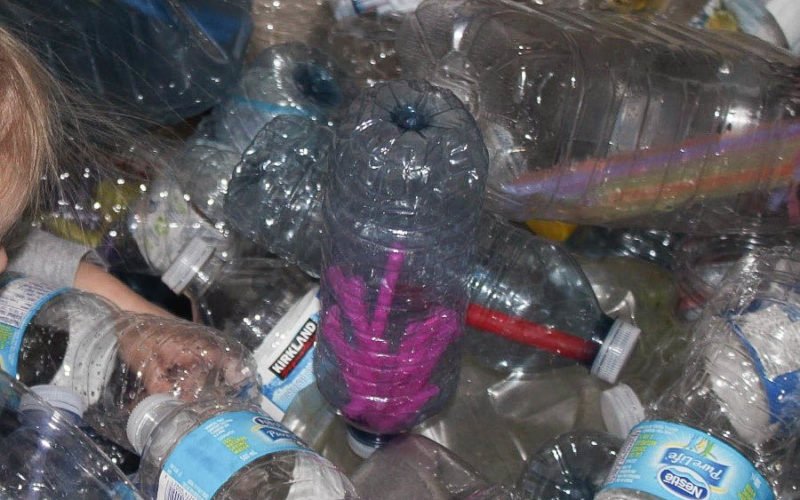How does intensifying plastics’ presence in the classroom invite children to practice curiosity and disrupt indifference?
Shared by KELLY-ANN MACALPINE
How does intensifying plastics’ presence in the classroom invite children to practice curiosity and disrupt indifference? Common worlding waste pedagogies resist remediation initiatives – Reduce Reuse Recycle (3Rs) and the neoliberal push to train children to become good environmental stewards that manage the (externalized) plastic problem. Instead they find ways to engage with plastics to disrupt consumerist realities of 21st century capitalism and toxic plasticized worlds. As they curate the plastic classroom with hundreds of water bottles, the pedagogists and educators intensify the presence of plastics to confront and reframe the ubiquitous nature of plastic childhoods. Processes of thinking-with and being-with excess plastics recast child-plastic relations. By disrupting managerial processes that merely move plastics out of sight and out of mind, we wonder how excess plastics invite children to practice curiosity and disrupt indifference.
This microblog connects to the following article:
References
MacAlpine, K.*, with Johnstone, H., Minten, L., Sparkes, L., and Grigg, B. (2020). Thinking with plastics: Common worlds waste pedagogies disrupt the early childhood classroom. eceLINK, 4(1), 10.

